
Health is a crown on the heads of the healthy that only the sick can see.

🌙 Overcoming Sleep Problems: Sugar, Starches : Fasting
Learn how to overcome sleep problems by cutting out sugar and starches, and incorporating fasting into your routine. Explore the impact of age, arthritis, medications, and more on your sleep quality.
GENERAL
Dr Hassan Al Warraqii


🌙Overcoming Sleep Problems: Sugar, Starches : Fasting
My Amazing experience in overcoming sleep problems : Cutting down on sugar, starches and fasting
Learn how to overcome sleep problems by cutting out sugar and starches, and incorporating fasting into your routine. Explore the impact of age, arthritis, medications, and more on your sleep quality.
Causes that lead to sleep disorders
With age, the period of deep sleep may decrease and the periods of waking up during the night may increase
Such as arthritis, heart disease, diabetes, and respiratory diseases that may cause pain or difficulty breathing at night
Some medications taken by the elderly, such as diuretics and some antidepressants
Low levels of the hormone melatonin that regulates sleep can affect the quality of sleep
Anxiety and depression can lead to insomnia or intermittent sleep
Fasting
simple weight loss
promotes mental clarity and mood
improves immune function
increases muscle growth
Stable Blood Sugar
may experience hunger, fatigue, food cravings, and trouble concentrating.
glycogen stores (sugar stores), and your blood glucose levels will stabilize
ketosis — your body stops relying on carbohydrates for fuel and begins burning your body fat stores instead
Short-term fasting may also lower blood pressure and increase insulin sensitivity
Ketosis, Fat Burning, and Mental Clarity
full ketosis
Fat stores into ketone bodies — bundles of fuel that power your muscles, heart, and brain.
Appetite Suppression
Ketones suppress appetite, hunger should actually start to subside during this fasting stage
fasting begins to get easier as you fast for a longer time.
Fat Loss
Your body switches fully into fat-burning mode, and because you don’t have any food in your system, you begin to burn through body fat quickly.
fasting decreases ghrelin, the hormone that makes you want to eat a lot of food, and also stabilizes your insulin levels, which prevents food cravings
Mental Clarity
brain-derived neurotrophic factor (BDNF).
BDNF is a protein that your brain makes to protect existing brain cells.
BDNF also encourages the growth of new brain pathways.
BDNF also enhances learning and boosts mood
Fasting and ketosis both increase BDNF
Autophagy and Anti-Aging
recycling old or damaged cells and reducing inflammation. anti-aging or anti-inflammatory benefits
mild stress (such as exercise or an extended fast), your cells respond by becoming more efficient.
self-eating, exactly what happens. During autophagy, find anything that’s old, damaged, or functioning poorly, and replace them with shiny new versions.
The old parts are either recycled into new materials or destroyed.
Fasting triggered autophagy in the brain, clearing out misfolded proteins linked to Alzheimer’s disease
Autophagy declines naturally as you age, which is connected to a variety of diseases.
Fasting may be able to combat the age-related decline, keeping you biologically younger and protecting your cells from oxidative stress
may help kill cancer cells
Fasting reduces bodywide inflammation via autophagy
Growth Hormone and Recovery Muscle Growth and Repair
growth hormone levels begin to shift, which provides you with a new set of benefits.
fasting increased human growth hormone (HGH) secretion by up to 400%
HGH increases muscle mass and stimulates faster muscle repair
It may also speed up the healing process for wounds and more serious injuries
build muscle, not lose it
Stem Cells and Immune Function Immune System Regeneration
near-complete rejuvenation of the immune system. Fasting triggered stem cell production, creating brand new immune cells to replace old ones
cancer patients fast throughout chemotherapy treatment. Normally,
chemotherapy devastates the immune system, increasing the risk of infection and illness for cancer patients.
when patients fasted during chemo, their immune system stayed strong throughout the process.
Some tips can be followed
Try to sleep and wake up at the same time every day
Limit naps: Try to avoid long naps during the day.
Foods that help you sleep soundly
Rich in tryptophan: These amino acids help the body produce melatonin, which is the sleep hormone
Chicken and turkey: High-quality proteins and a good source of tryptophan
Seeds and nuts: such as pumpkin seeds, flax seeds, almonds, and cashews.
Milk and dairy products: contain tryptophan, protein and calcium that work together to improve sleep
Foods rich in complex carbohydrates: help increase levels of serotonin, a neurotransmitter associated with good sleep
Whole grains: brown rice, oats, brown bread
Starchy vegetables: sweet potatoes
Foods rich in magnesium: magnesium helps with relaxation and reducing stress
Dark leafy greens: spinach, kale
Seeds and nuts: cashews, almonds
Whole grains: oats, whole wheat
Foods rich in vitamin B6: help with the production of serotonin and melatonin
Bananas: rich in potassium and magnesium in addition to vitamin B6
Salmon: excellent source of protein and vitamin B6
Avocado: rich in healthy fats and vitamin B6
All this?nice
But.the.most.beautiful.is.there.one.thing.you.can.do?that.will.improve
They.that.thing.in.my.estimate.is.a?reduction Starches and sugars as much as possible, or avoid them altogether. This leads to deep sleep and the body returns to normal.
This should be gradual, not overnight.
Accordingly, you can reach this goal within two weeks, three months. This is my way of overcoming sleep problems.
You can also fast Mondays and Thursdays or a little more or three days every month. This may help a lot in this area.
Cutting out sugar and starches and fasting can have a big impact on the quality of sleep.
Reducing your intake of sugar and starches can help improve sleep, as these foods can lead to fluctuations in blood sugar levels, which affects sleep. These methods are suitable for everyone
Fasting can also have benefits for sleep, as it helps regulate the body's biological clock and improve sleep quality
mayoclinic
https://www.mayoclinic.org/ar/healthy-lifestyle/caregivers/in-depth/alzheimers/art-20047832
https://www.youtube.com/watch?v=fYZk6RKPIws
https://app.ahrefs.com/dashboard
https://www.sleepfoundation.org/physical-health/intermittent-fasting-sleep
https://sleepdoctor.com/nutrition/how-sugar-affects-sleep/
https://www.sciencedirect.com/science/article/pii/S2161831322007803
Overcoming Sleep Problems: Managing Sugar, Starches, and Fasting
Possible FAQs could include:
1. How does sugar intake affect sleep quality?
2. Are certain types of carbohydrates better for sleep?
3. Can intermittent fasting help with sleep problems?
4. What’s the best time to eat when fasting to avoid sleep disruptions?
5. How can I manage hunger during fasting without disrupting sleep?
6. Does fasting affect melatonin production?
7. Should I avoid all carbs before bed if I have trouble sleeping?
8. How do blood sugar levels impact sleep during fasting?
9. Can a low-sugar diet improve sleep?
10. Are there specific foods that promote sleep while fasting?
Here’s a structured guide to addressing sleep issues through dietary adjustments related to sugar, starches, and fasting, based on common FAQs:
1. How does sugar intake affect sleep quality?
Blood Sugar Spikes/Crashes: High sugar consumption, especially before bed, can cause energy fluctuations, leading to restlessness or nighttime awakenings.
Insulin Response: Rapid insulin spikes may disrupt melatonin production.
Tip: Avoid sugary snacks/drinks 2–3 hours before bed.
Opt for low-glycemic-index foods like nuts or yogurt if hungry.
2. Are certain carbohydrates better for sleep?
Complex Carbs: Whole grains, sweet potatoes, or oats promote steady tryptophan release, aiding serotonin and melatonin production.
Simple Carbs: Refined sugars/starches (e.g., white bread) may cause crashes.
Tip: Include complex carbs in evening meals (e.g., quinoa, brown rice) for better sleep.
3. Can intermittent fasting improve sleep?
Pros: Aligning fasting with circadian rhythms (e.g., stopping eating by 7 PM) may enhance sleep quality.
Cons: Prolonged fasting or late-night hunger can increase cortisol/adrenaline, disrupting sleep.
Tip: Experiment with time-restricted eating (e.g., 12–14 hour overnight fast) and avoid late-night fasting-induced hunger.
4. When should I eat during fasting to avoid sleep disruptions?
Optimal Timing: Finish meals 3–4 hours before bedtime to allow digestion and stabilize blood sugar.
Breaking a Fast: Avoid heavy, sugary, or high-carb meals close to bedtime; opt for balanced, light dinners.
5. How to manage hunger during fasting without disrupting sleep?
Hydration: Drink water or herbal tea (e.g., chamomile) to curb hunger.
Electrolytes: Include sodium/magnesium-rich foods (e.g., leafy greens, nuts) to prevent restlessness.
Small Snacks: If needed, try a handful of almonds or celery with nut butter.
6. Does fasting affect melatonin production?
Circadian Alignment: Eating earlier may sync with natural melatonin release.
Caution: Extreme fasting (e.g., >16 hours) might stress the body, altering hormone balance.
7. Should I avoid all carbs before bed?
No: Small portions of complex carbs (e.g., oatmeal, banana) can aid sleep via tryptophan.
Avoid: Large portions or refined carbs (e.g., cookies, pasta) that spike blood sugar.
8. Blood sugar and sleep during fasting
Hypoglycemia: Low blood sugar overnight may cause awakenings. Monitor symptoms like sweating or racing heart.
Solution: A protein/fat-rich snack (e.g., cottage cheese) before fasting periods may stabilize levels.
9. Can a low-sugar diet improve sleep?
Yes: Reducing sugar lowers inflammation and stabilizes energy, promoting deeper sleep. Focus on whole foods (vegetables, lean proteins).
10. Sleep-promoting foods while fasting
Magnesium-Rich: Spinach, pumpkin seeds, or dark chocolate (in moderation).
Tryptophan Sources: Turkey, eggs, or tofu.
Herbal Teas: Chamomile or valerian root.
Key Takeaways:
Prioritize complex carbs over simple sugars in evening meals.
Align fasting windows with circadian rhythms (e.g., early dinner).
Stay hydrated and balance electrolytes.
Experiment gradually and track responses.
Note: Individual responses vary. Consult a healthcare provider if sleep issues persist. Combine dietary changes with good sleep hygiene (consistent schedule, dark room, limited screens).
By addressing sugar, starch intake, and fasting timing holistically, you can optimize both metabolic health and sleep quality.
11. What is intermittent fasting, and how is it applied?
Intermittent fasting is a dietary approach that involves restricting eating to specific time windows during the day and fasting (abstaining from food) during the remaining hours.
This includes limiting eating to 8, 10, or 12 hours daily and fasting for the rest.
For example:
The 16:8 method means eating only during an 8-hour window (e.g., noon to 8 PM) and fasting for 16 hours.
The 5:2 method involves reducing calorie intake by 25% for two days a week and eating normally on the other days.
12. What are the effects of sugar on the brain and body?
Sugar has multiple effects on the brain and body:
Triggers brain mechanisms based on its nutritional content, regardless of sweetness.
Alters neural circuits, impacting focus, mood, and behavior.
Excessive sugar intake can hinder health goals, while moderate, well-timed consumption may enhance cognitive function and physical performance.
13. Why is glucose (blood sugar) important for the brain?
The brain primarily uses glucose as its main energy source.
Neurons require glucose to function properly and transmit electrical signals.
However, consuming more sugar does not improve brain function. During fasting, for instance, the brain can maintain high focus despite lower blood glucose levels.
14. How does fructose (fruit sugar) affect appetite compared to glucose?
Fructose impacts the brain and body differently than glucose:
Fructose suppresses appetite-reducing hormones in neural circuits.
As a result, fructose may increase cravings for more food compared to glucose.
15. What are the parallel neural pathways influencing sugar consumption?
Two main parallel pathways drive sugar cravings:
Conscious pathway: Relates to sweetness perception. Sweet taste receptors send signals to the brain, increasing desire for sugary foods.
Unconscious pathway: Relates to the nutritional content of sweet foods. Gut neurons detect glucose-boosting foods and signal the brain to crave more, regardless of taste.
16. How can the Glycemic Index (GI) help control sugar cravings?
The Glycemic Index measures how quickly foods raise blood sugar. To manage cravings:
Choose low-GI foods (e.g., whole grains, legumes).
Pair sweet foods with fiber or fats (e.g., fruit with nuts) to slow glucose spikes and regulate dopamine release, reducing cravings.
17. What are the benefits of intermittent fasting for sleep and mental health?
Intermittent fasting may:
Improve insulin sensitivity and lower blood pressure.
Boost mental clarity by increasing brain-derived neurotrophic factor (BDNF), which protects neurons and promotes new neural pathways, enhancing learning and mood.
Fasting and ketosis (fat-burning state) can elevate BDNF levels.
18. What are some ways to reduce sugar cravings without relying on willpower?
Strategies include:
Essential fatty acids (omega-3s): Found in fish, flaxseeds, or walnuts.
Amino acids (glutamine): May curb cravings, especially if deficient.
Lemon juice/lime: Can blunt blood sugar spikes after sweets.
Spices: Cinnamon helps regulate blood sugar.
Note: Consistency and gradual adjustments are key. Pair these strategies with balanced nutrition and mindful eating for sustainable results.
keywords
keywords
My experience to overcome sleep problems, - especially in the elderly, - cutting out sugar, starches, and fasting, age, arthritis, medications, melatonin hormone, foods that help you sleep soundly, trying to sleep and wake up at the same time every day, limiting naps, heart disease, diabetes, and respiratory diseases, which may cause pain or difficulty breathing, during the night,
🌙 Overcoming Sleep Problems: Sugar, Starches & the Power of Fasting
Why You Can’t Sleep—And How Fasting Might Be the Answer
🧠 The Hidden Link Between Food and Sleep
Struggling with:
Midnight awakenings?
Trouble falling asleep?
Fatigue despite 8 hours in bed?
Most sleep problems don’t start in the brain — they start in the gut and bloodstream.
🍞 Sugar & Starches: The Sleep Saboteurs
Refined carbs and sugar are stealth enemies of restful sleep. Here’s how they interfere:
🔺 Blood Sugar Rollercoaster: A high-carb dinner causes a spike, then a crash—waking you up at 2 AM.
🧠 Cortisol Disruption: Reactive hypoglycemia triggers stress hormones (like adrenaline and cortisol) at night.
💦 Inflammation: Sugar contributes to systemic inflammation, which disturbs deep sleep cycles.
🍽️ Gut Distress: Fermentation of sugars at night can lead to bloating, reflux, or gut-triggered wakefulness.
🍬 Eating sweet snacks or heavy starches before bed might feel comforting, but it wires your body for alertness, not rest.
⏳ Why Fasting Can Restore Natural Sleep
Intermittent fasting and proper meal timing help reset your biological rhythms. Here's how fasting helps:
✅ Stabilizes Blood Sugar
No late-night glucose crash = uninterrupted sleep.
🧠 Promotes Melatonin Balance
Night fasting enhances the body’s own sleep hormone production.
🔄 Syncs Circadian Rhythm
Eating in daylight hours and fasting at night reprograms the brain and gut clocks.
💡 Reduces Inflammation
Giving the digestive tract a break cools inflammation, reducing sleep disturbances.
🌙 Dr. Hassan's Evening Protocol for Deep Sleep
TimeWhat to Do6:00 PMLast light, low-carb, high-fat meal 🥑8:00 PMHerbal tea (chamomile or lemon balm) 🍵8:30 PM1 tsp raw honey (optional) 🍯9:00 PMSilence, no screens, gentle stretching10:00 PMSleep in darkness 💤
🌕 A clean evening routine + fasting window (14–16 hours) can reset poor sleep in under a week.
🧪 Bonus: Natural Sleep Allies
Raw Honey (small amounts): Stabilizes liver glycogen at night
Magnesium-rich herbs: Like basil or nettle tea
Black seed oil: Anti-inflammatory, relaxes nervous system
Breathwork: Box breathing before bed
Grounding: Bare feet on earth in the morning to anchor circadian rhythm
💬 Final Thought
Insomnia isn't always a mental issue—it may be metabolic chaos in disguise.
Give your body a chance to rest by giving it less—less sugar, less stimulation, more rhythm.
✍️ Author: Dr. Hassan Al Warraqi
Founder of H-K-E-M, Dr. Hassan teaches how fasting, natural remedies, and metabolic awareness offer true, deep healing—including better sleep.
🔗 www.h-k-e-m.com
📸 Instagram: @hkem.health
#FastingForSleep #SugarFreeSleep #CircadianHealing #HKEM #DrHassanAlWarraqi
📸 Instagram / Facebook / Threads
🌙 Trouble Sleeping? The Problem Might Be on Your Plate...
Too much sugar or starch before bed could be wrecking your rest.
🍞 Late carbs → Blood sugar crash
😵 2 AM cortisol spike → You're wide awake
🔥 Inflammation → Restless body, tired brain
Dr. Hassan Al Warraqi reveals a natural fix:
✨ Fasting + clean evenings = deeper sleep
✅ No late-night snacking
✅ Light dinner with healthy fats
✅ Herbal tea + small raw honey dose
✅ Digital sunset + darkness
📖 Learn the science of metabolic sleep healing
🔗 www.h-k-e-m.com
📸 @hkem.health
#FastingForSleep #SleepReset #HoneyAndHealing #MetabolicHealth #DrHassanAlWarraqi #HKEM
🐦 Twitter / X
Sleep issues?
It’s not always stress.
It’s metabolic chaos.
🍞 Late starch = blood sugar crash
⏳ Fasting = circadian reset
🍯 Raw honey = nighttime fuel
🔥 Inflammation = sleep breaker
Dr. Hassan Al Warraqi shares a natural protocol.
#FastingForSleep #SleepDisruption #HoneyHealing #HKEM
🛌 Chronic Sleep Issues? Try Looking at Your Metabolism
Many sleep disorders stem from poor blood sugar control, not just stress or anxiety.
Dr. Hassan Al Warraqi presents a holistic approach:
Eliminate late-night sugars & starches
Introduce a fasting window (12–16 hrs)
Use raw honey to support liver glycogen
Support melatonin via gut & circadian rhythm repair
🔗 Discover the fasting-sleep connection at www.h-k-e-m.com
#SleepOptimization #FunctionalMedicine #CircadianHealth #FastingForWellbeing #HKEM #DrHassanAlWarraqi
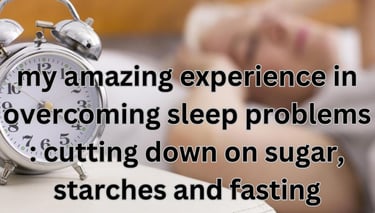

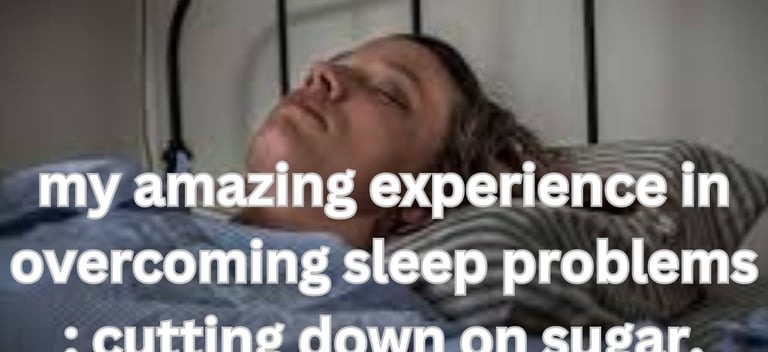

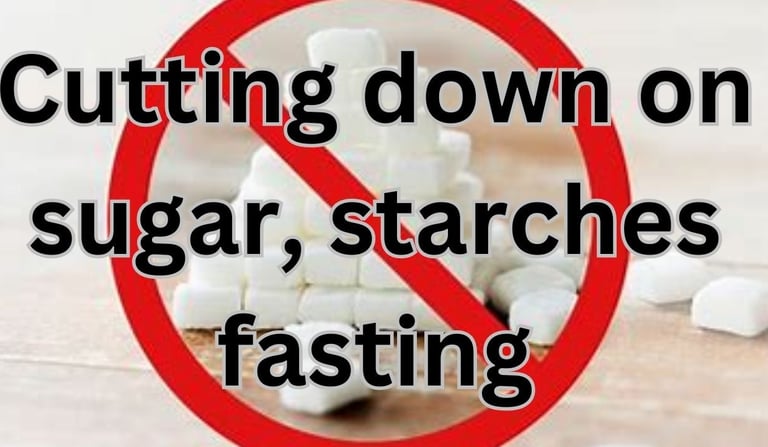

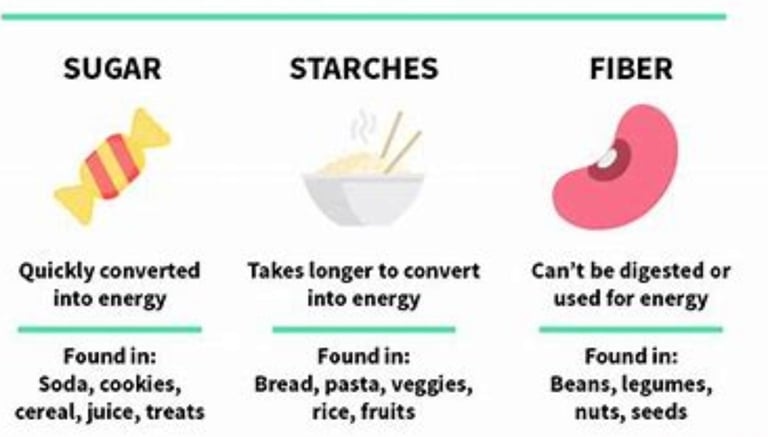

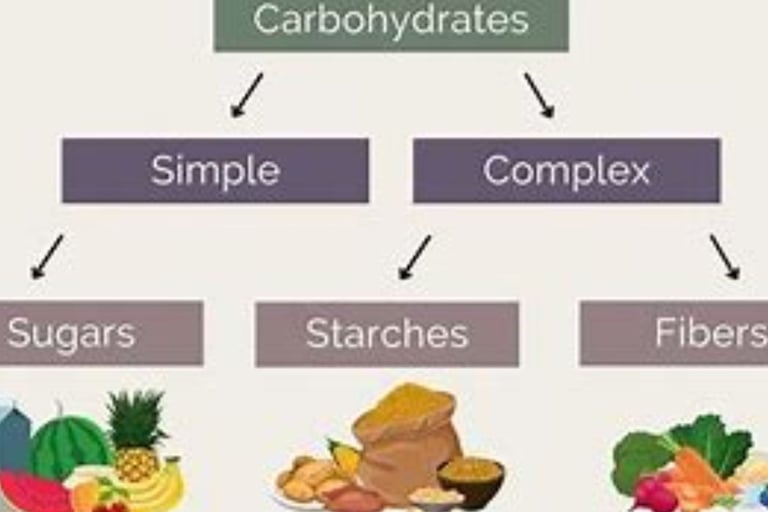



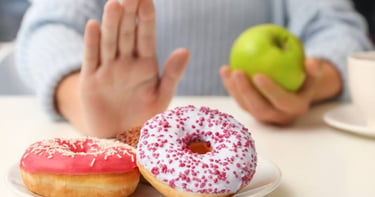



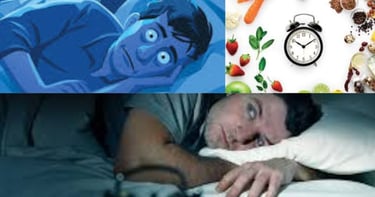




Get in touch
Address
Cairo Al Rehab
Contacts
+20 109 405 2056
hassanalwarraqi@h-k-e-m.com
